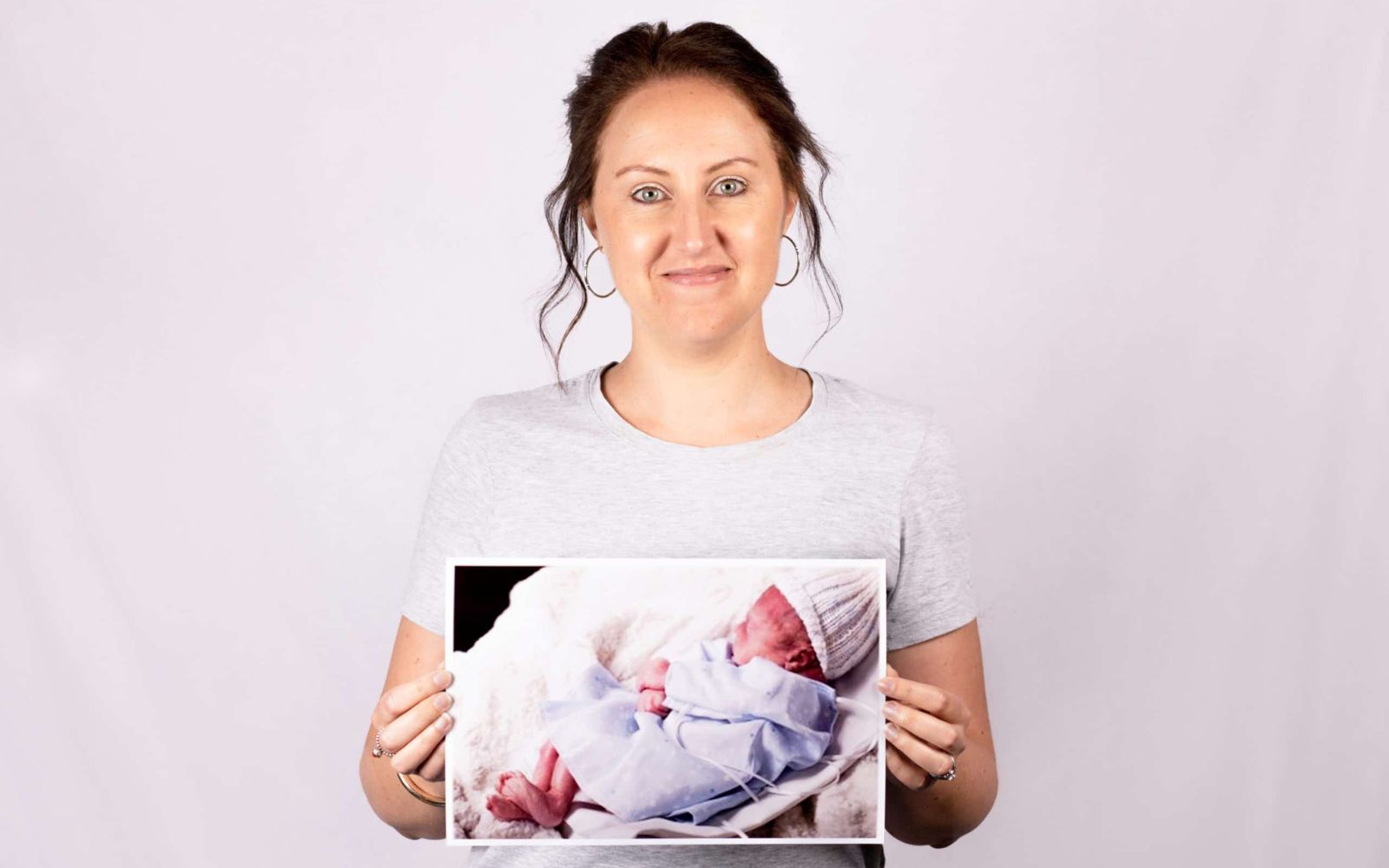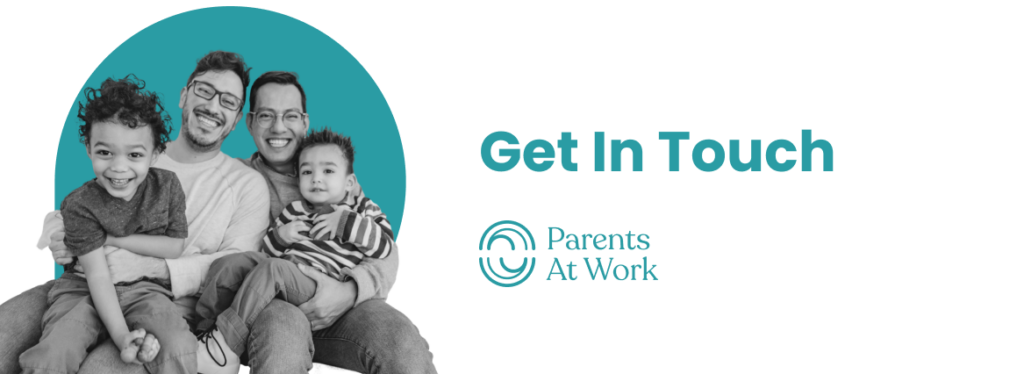Steps to put in place to create a supportive workplace environment for parents of babies who are stillborn or die as infants
“I want the subject of stillbirth to be more mainstream. It has been so hidden, so taboo, that when it does happen to people, they’re extremely shocked. The perception of stillbirth is that it was something that happened historically, and it doesn’t happen these days.”
October 15th is International Pregnancy and Infant Loss Remembrance Day. It is a day that is particularly important for bereaved parents to remember their babies who have died as well as an opportunity to come together as a community to encourage more public conversation about the topic which is still seen as taboo, particularly in workplaces.
 Stillbirths are classified as deaths of babies born at 20 or more weeks of gestation, or more than 400 grams birthweight. The Australian Stillbirth Foundation says six babies are stillborn every day across the country, for every 1 child that dies of SIDS, 35 are Stillborn and the rate has not changed over the last 20 years. There is a culture of silence around stillbirth. It is a hidden tragedy and the public conversation around this and the investment into research or support is lacking.
Stillbirths are classified as deaths of babies born at 20 or more weeks of gestation, or more than 400 grams birthweight. The Australian Stillbirth Foundation says six babies are stillborn every day across the country, for every 1 child that dies of SIDS, 35 are Stillborn and the rate has not changed over the last 20 years. There is a culture of silence around stillbirth. It is a hidden tragedy and the public conversation around this and the investment into research or support is lacking.
In a recent interview Ann-Maree Imrie, author, Stillbirth Foundation Australia ambassador and advocate of families dealing with the loss of a baby provided us with greater insight to this issue. As a social worker who worked with families experiencing grief and bereavement she did not realise its full devastation until the stillbirth of her first-born child, baby Xavier in 2015.
Ann-Maree has kindly offered to share her experience and how through a supportive workplace she was able to have the time and space she needed to grieve and the support to return to work when she was ready.
1. Can you tell us about your family’s story and experience?
My name is Ann-Maree Imrie. I am a qualified social worker with specialised training in grief and bereavement. Five years ago, my baby boy died in the middle of a work day and I was forever changed. The grief support I was offering others, had to be turned towards myself.
My husband and I became a statistic – one of 6 families that day, whose baby was stillborn.
The death of our son, Xavier, had a significant impact on my husband and I. We required extended time off work. My husband returned to work one month later, and his employer provided financial support to cover the funeral and burial costs. I ultimately resigned from my Social Work position. But through the incredible support of our Senior Leadership Team, I returned to the same workplace in a different role.
Returning to a workplace with support, played a significant role in my ability to not only survive this loss, but to thrive:
- I still work for the same organisation today.
- I have become a mum again to living children – another two boys!
- I am now an author, professional speaker, and strong advocate in the baby loss space.
2. How specifically did your workplace support you through this time?
It would have been challenging for my workplace. I was in the office one moment, then I walked out to my doctor’s appointment, and never came back (to that role). As tough as that would have been for my manager and my team, I was never made to feel like a burden. I received ongoing compassion and emotional support.
In a practical sense, they were quick to respond. Some things needed to be negotiated with HR, such as my paid leave entitlements, but there was open and consistent communication along the way.
From the beginning, all decisions were made in consultation with me. Some key examples:
- How other staff and our clients should be informed about Xavier’s death
- How much leave I could take
- In what capacity I would like to return to work
- Planning my transition back to work (starting with part time and a slow build up to full time)
 A pivotal moment for me was receiving a phone call from our CEO to discuss my return to work. After 5 months leave, I told him I felt able to return 3 days a week. His response, “Ann-Maree, just come back for one day. See how that goes. If at the end of that day, you feel able to come again the next day, then you do that. There is no rush, and we are here to support you”.
A pivotal moment for me was receiving a phone call from our CEO to discuss my return to work. After 5 months leave, I told him I felt able to return 3 days a week. His response, “Ann-Maree, just come back for one day. See how that goes. If at the end of that day, you feel able to come again the next day, then you do that. There is no rush, and we are here to support you”.
I realise this level of flexibility might not be viable in all workplaces, however an important point to note is, this conversation was not just meaningful because of the flexibility offered. It was meaningful because it came from the head of our organisation.
“If your senior staff can respond to baby loss in a meaningful way, this can have a beautiful ripple effect throughout the organisation. It’s less about your workplace policies, and more about your culture and values system.”
An example of this would be the meals roster that was set up by my workplace. For a period of one month following Xavier’s death, my husband and I received meals on our doorstep – all home made by different staff members who wanted to show their support.
3. We know that not everyone has experienced this same level of support – what can organisations do?
In the same way that organisations commit to the 9 Key Family Friendly Recommendations for Employers – this is about committing to a desired outcome, that is, that your organisation cares for families (including bereaved families). Its important to set the tone for a ‘person-centred’ workplace. In other words, your organisation cares about the ‘person’ first, and the ‘employee’ second.
I am not suggesting that deadlines, targets and work ethic get thrown out the window. It is still reasonable to expect professionalism from your employee. But they are much more likely to perform, if they are feeling supported on a human level.
In a practical sense, I would recommend being on the front-foot by having a clear policy in place for when a staff member experiences baby loss. Ambiguity in these situations is unhelpful to you, as the employer, AND the employee. Taking a ‘case by case’ approach means that, at a time of significant grief and trauma, a parent is potentially having to advocate for themselves to receive support from their workplace.
In order to reduce time spent making ‘case-by-case decisions’, you should have a clear policy in place – ready to action when needed. It shows professionalism that you have knowledge, and are prepared, for something that is totally unexpected by your employee.
As mentioned above, it is valuable for you to maintain open communication with your employee and collaborate with them around decision making. Don’t assume that you are doing the ‘right thing’ by someone, without discussing decisions with them first.
Flexibility is key! Living and working through Covid this year has taught us that workplaces can be highly adaptable and have capacity to manage change on very short notice. You can apply these same principles to the unexpected event of baby loss.
4. Do you think that some organisations, colleagues, or leaders are worried about doing or saying the wrong thing and therefore do nothing – what would you say to a leader or a colleague about this. What are some of the steps they could take?
Given the subject of pregnancy loss, stillbirth and neonatal death is taboo, we don’t have a lot of examples from western society around how to navigate this topic of conversation. In fact, we are not confident in our use of language around any kind of death, grief and bereavement. We tend to talk around it, or try to soften it by using words like “passed away”, “lost” etc. Most people who have experienced death in their lives are not afraid of the word ‘died’. A good rule of thumb is to listen closely to the language that the bereaved parent is using, and follow suit.
It’s hard to find the right words, and that’s because there are no words that will remove this person’s pain. So often as humans we panic and we think we have to say something useful, and this is usually when the platitudes come out, like “everything happens for a reason”, “there must have been something wrong with the baby”, “you can try again” etc. These kinds of comments are unhelpful, but saying nothing at all is not the answer either. Its ok to acknowledge that you don’t know what to say.
“Try to remember that it is not your job to fix it or make it go away. Your job is to simply work alongside the bereaved parent in an encouraging and compassionate way.”
5. There has been a recent senate enquiry into stillbirth research and education which also looked at workplace provisions, are you able to give us a bit of insight into this?
Out of the Senate Inquiry came a National Action Plan which has a number of elements to improve the rates and impact of stillbirth in Australia. Recommendations for the workplace state that provisions for pregnancy loss and stillbirth are “clear and consistent across all employers, and meet international best practice such as those contained in the Ausgrid Enterprise Agreement”. There is also a call to create very clear policy around paid leave entitlements in the event that a baby is stillborn.
6. Currently, parents who experience a stillbirth or infant death are only entitled to a guaranteed six-weeks of unpaid leave before they can be required to return to work. The new legislation that was introduced recently creates a guaranteed entitlement to 12 months of unpaid leave – what difference will this have for families?
This change to unpaid leave entitlements will give these parents the time and space they need to grieve the loss of their baby, without having to worry about returning to work before they’re ready to do so.
The implementation of this is also validating for bereaved parents, that even though their baby has died, they are still in fact parents. This isn’t about special treatment. It’s about enabling employees to access something they were already entitled to, had their baby been born alive.
7. You have developed an online education program for workplaces and leaders to guide them on how to craft their own HR policy around baby loss, and support employees through this experience – can you tell us a bit more about this?
In a nutshell: This will be an online training program that upskills employers to respond proactively to pregnancy loss, stillbirth and infant death (all encompassed as ‘baby loss’). Think of it as a smart and simple protective blanket for your business and your employees.
It will start with a ‘how-to’ guide on crafting your own HR policy for baby loss in the workplace, with recommendations from the Australian Federal Government Senate Inquiry into Stillbirth (2018).
It will also give guidance on how to respond in the immediate instance of baby loss, right through the first year, as you support your employee to successfully return to the workforce.
8. Where can employers and parents go to get more support where can they go?
There are a number of organisations who offer support to parents who have experienced all kinds of baby loss. The most prominent are Stillbirth Foundation Australia, Red Nose / SANDS (who are merging) and Pink Elephants Support Network which provides resources, information, and peer-support for anyone impacted by early pregnancy loss.
Recommendations that came out of the Senate Inquiry into Stillbirth.



